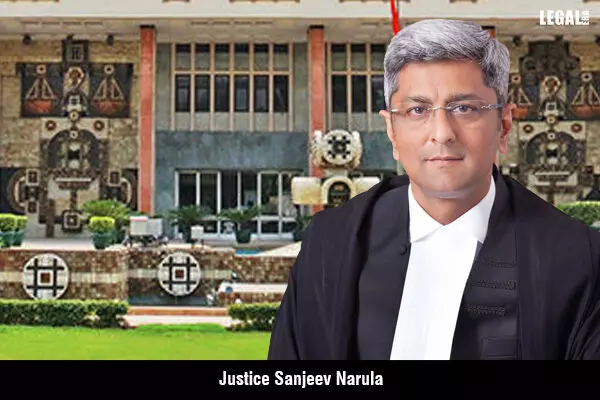- Home
- News
- Articles+
- Aerospace
- Artificial Intelligence
- Agriculture
- Alternate Dispute Resolution
- Arbitration & Mediation
- Banking and Finance
- Bankruptcy
- Book Review
- Bribery & Corruption
- Commercial Litigation
- Competition Law
- Conference Reports
- Consumer Products
- Contract
- Corporate Governance
- Corporate Law
- Covid-19
- Cryptocurrency
- Cybersecurity
- Data Protection
- Defence
- Digital Economy
- E-commerce
- Employment Law
- Energy and Natural Resources
- Entertainment and Sports Law
- Environmental Law
- Environmental, Social, and Governance
- Foreign Direct Investment
- Food and Beverage
- Gaming
- Health Care
- IBC Diaries
- In Focus
- Inclusion & Diversity
- Insurance Law
- Intellectual Property
- International Law
- IP & Tech Era
- Know the Law
- Labour Laws
- Law & Policy and Regulation
- Litigation
- Litigation Funding
- Manufacturing
- Mergers & Acquisitions
- NFTs
- Privacy
- Private Equity
- Project Finance
- Real Estate
- Risk and Compliance
- Student Corner
- Take On Board
- Tax
- Technology Media and Telecom
- Tributes
- Viewpoint
- Zoom In
- Law Firms
- In-House
- Rankings
- E-Magazine
- Legal Era TV
- Events
- Middle East
- Africa
- News
- Articles
- Aerospace
- Artificial Intelligence
- Agriculture
- Alternate Dispute Resolution
- Arbitration & Mediation
- Banking and Finance
- Bankruptcy
- Book Review
- Bribery & Corruption
- Commercial Litigation
- Competition Law
- Conference Reports
- Consumer Products
- Contract
- Corporate Governance
- Corporate Law
- Covid-19
- Cryptocurrency
- Cybersecurity
- Data Protection
- Defence
- Digital Economy
- E-commerce
- Employment Law
- Energy and Natural Resources
- Entertainment and Sports Law
- Environmental Law
- Environmental, Social, and Governance
- Foreign Direct Investment
- Food and Beverage
- Gaming
- Health Care
- IBC Diaries
- In Focus
- Inclusion & Diversity
- Insurance Law
- Intellectual Property
- International Law
- IP & Tech Era
- Know the Law
- Labour Laws
- Law & Policy and Regulation
- Litigation
- Litigation Funding
- Manufacturing
- Mergers & Acquisitions
- NFTs
- Privacy
- Private Equity
- Project Finance
- Real Estate
- Risk and Compliance
- Student Corner
- Take On Board
- Tax
- Technology Media and Telecom
- Tributes
- Viewpoint
- Zoom In
- Law Firms
- In-House
- Rankings
- E-Magazine
- Legal Era TV
- Events
- Middle East
- Africa
Delhi High Court Affirms Limited Jurisdiction Under Articles 226/227 Of The constitution For Procedural Orders In Arbitration Proceedings

Delhi High Court Affirms Limited Jurisdiction Under Articles 226/227 of the constitution for Procedural Orders in Arbitration Proceedings
Justice Sanjeev Narula of the Delhi High Court has clarified that the question ofmaintainability of a writ petition concerning arbitration proceedings is well settled. The Court emphasized that its jurisdiction under Articles 226 and 227 of the Constitution of India, 1950, cannot be invoked when the orders issued by arbitral tribunals are procedural in nature.
The petitioner, Lalit Mohan, filed a writ petition under Articles 226 and 227 of the Constitution, challenging an order from the arbitral tribunal dated September 7, 2024. This order was issued during the ongoing arbitral proceedings involving the petitioner and the respondent, M/S National Agricultural Co. Federation of India Ltd. (NAFED).
The arbitral tribunal had adjourned the proceedings at the request of the petitioner’s counsel until the National Company Law Tribunal (NCLT) decides on the insolvency proceedingsinitiated under Section 94 of the Insolvency and Bankruptcy Code (IBC). The tribunal indicated that it would consider signing the award after the NCLT renders its decision regarding the insolvency proceedings.
The petitioner contended that since an interim moratorium under Section 96 of the IBC comes into effect following the filing of a petition under Section 94, this interim moratorium should also extend to the signing of the award by the arbitral tribunal. Thus, the petitioner argued that the tribunal should be restrained from signing the award, claiming that doing so would violate Section 96 of the IBC.
The Court observed that its jurisdiction under Articles 226 and 227 of the Constitution is limited with respect to procedural orders issued by arbitral tribunals. It referred to multiple judgments from the Delhi High Court, specifically citing C.S. Construction Company Private Limited and Another v. Excelling Geo and Engineering Consultant and Others (2024) and Emerald Industries v. Tata Aldesa JV (2024), which established that the scope for interference in arbitration matters is very restricted.
The Court noted that the tribunal had not made any final decision regarding the signing of the award. It merely indicated that it would consider the feasibility of signing the award after the NCLT's decision in the insolvency petition, which does not imply that a final decision had been pronounced.
Consequently, the Court concluded that since no final order had been issued by the tribunal, any interference by the High Court under Article 226 in the arbitration proceedings was unwarranted.



